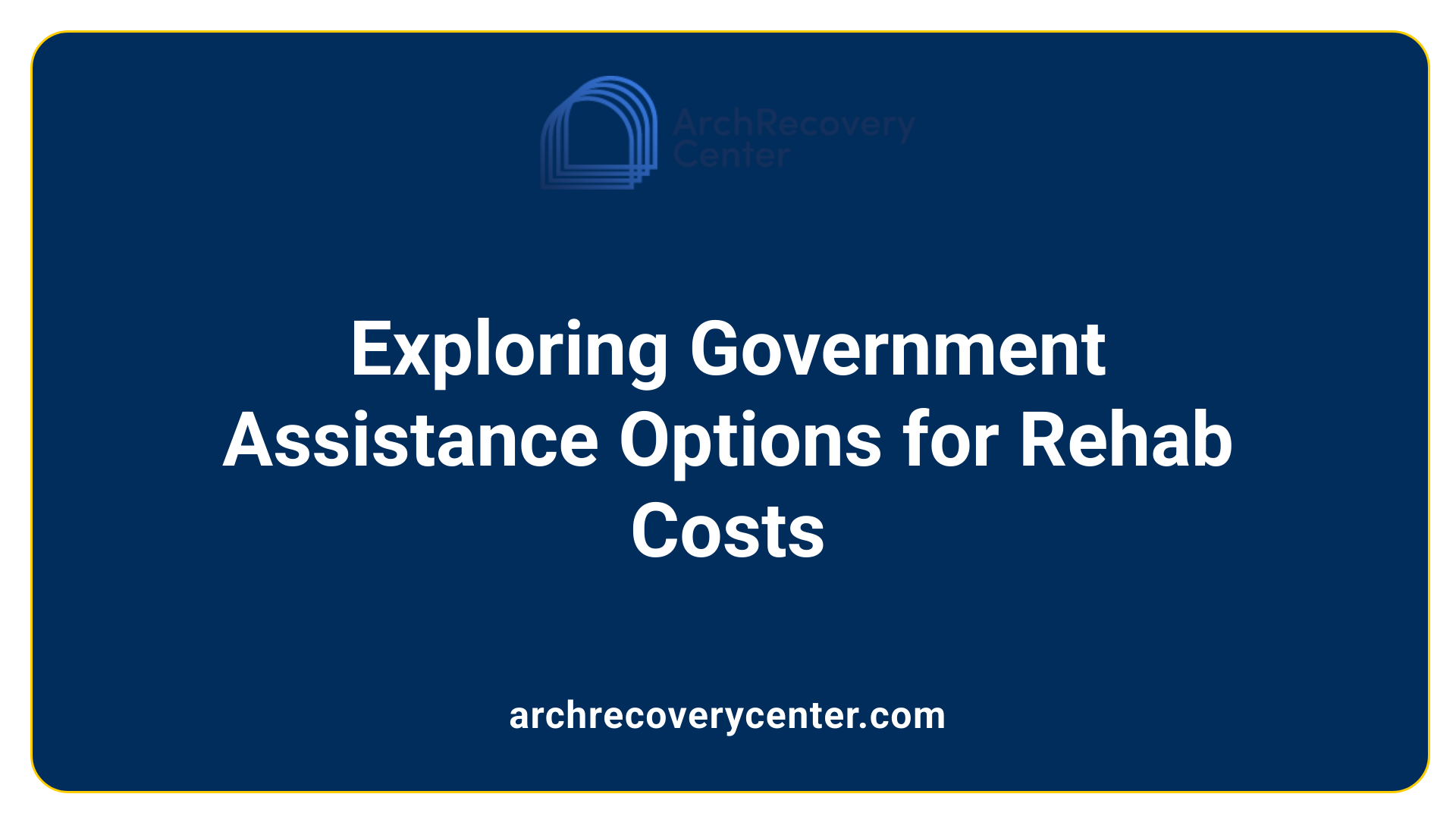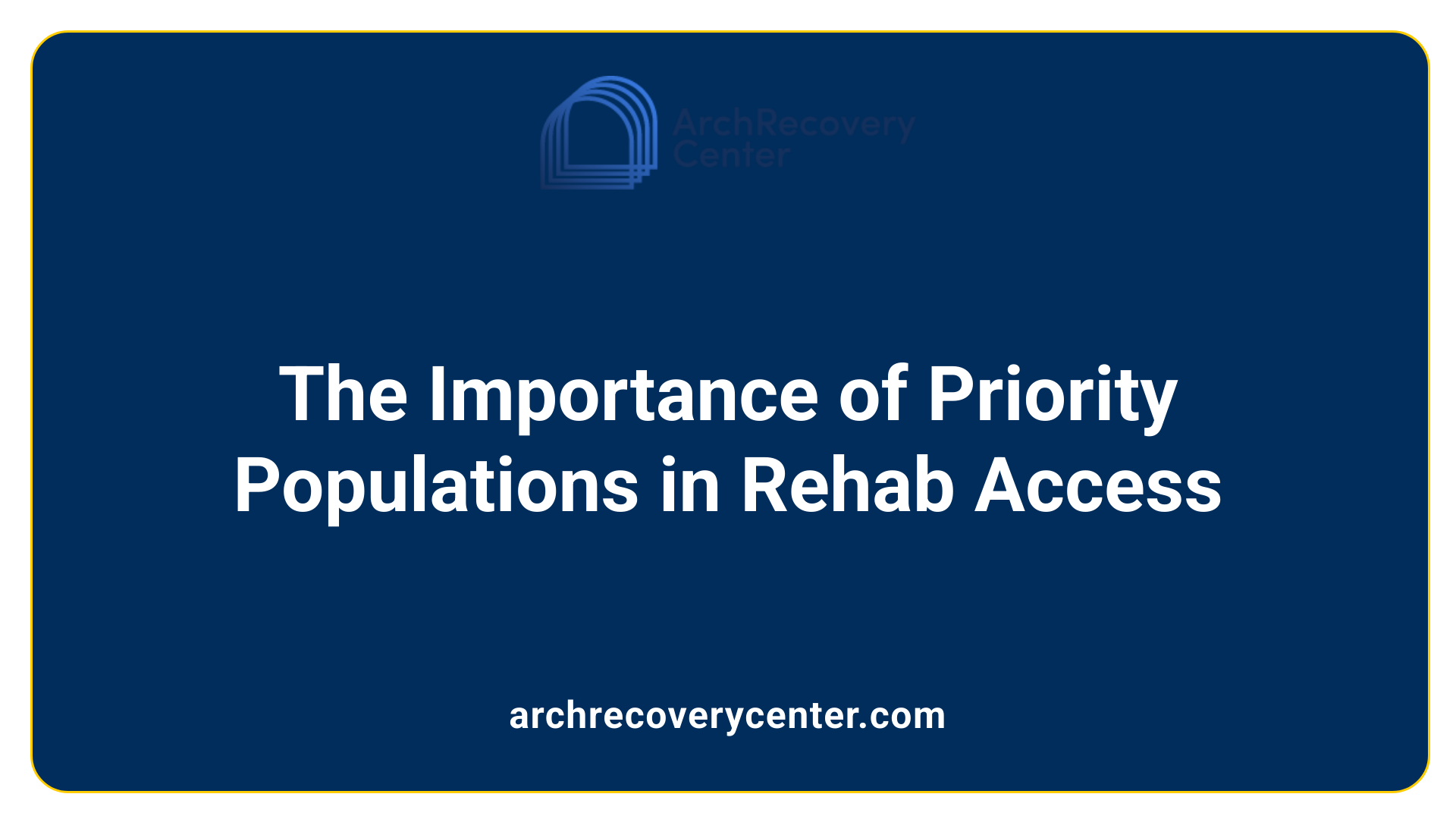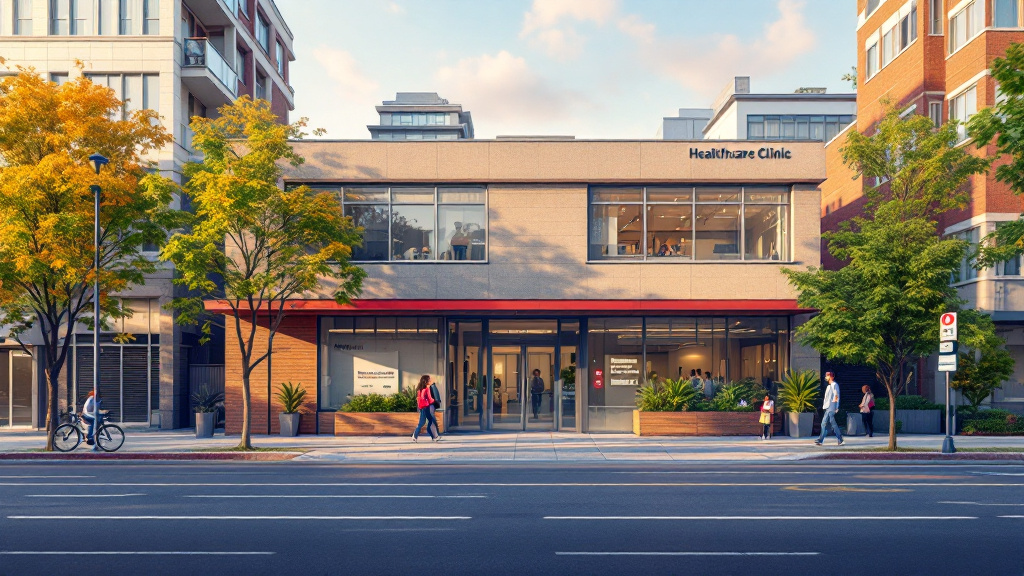Who Qualifies for Free Rehab Centers?

Understanding the Gateway to Free Rehabilitation
Seeking rehabilitation for drug and alcohol addiction can be an overwhelming process, particularly when cost is a concern. Fortunately, there are free and low-cost options available, but they come with certain eligibility criteria. This article explores who qualifies for these programs, the assistance available through government and nonprofit organizations, and what steps individuals can take to access them.
General Eligibility Criteria for Free Rehab

What are the general eligibility criteria for accessing free rehabilitation services?
To gain access to free rehabilitation services, individuals typically must meet a variety of eligibility criteria. Primarily, income verification is crucial. Many free rehab programs are designed for those who demonstrate financial hardship, ensuring that services are directed to individuals who truly need them.
Residency requirements are another important aspect. Most government-funded rehab programs necessitate proof of state residency. This ensures that state resources are utilized effectively, supporting local populations needing assistance.
Moreover, applicants may be asked to provide a substance use history to determine the level of care required. Many free rehab centers focus on specific priority groups, such as veterans, pregnant women, and those with severe substance use disorders, indicating an added layer of consideration for their application.
What specific additional criteria may be included?
In addition to the basic qualifications, several facilities may require individuals to participate in program activities, such as counseling or work therapy. Programs like those offered by The Salvation Army include such stipulations to ensure that participants are committed to their recovery.
More Information
Sources of funding for rehab, such as non-profit organizations and state programs, frequently have strict eligibility guidelines. This may involve further documentation, including lack of health insurance and proof of citizenship or legal residency. Those interested can explore resources like FindTreatment.gov, which can help clarify the specific requirements of different programs and enhance accessibility to addiction recovery support.
Government Assistance for Rehab Costs

How can the government assist in covering the costs of rehab?
The government offers various funded options to help individuals cover rehab costs, particularly those facing financial hardships. State-funded programs often provide low-cost or free treatment for substance use disorders. In addition, many local resources help by directing individuals to treatment facilities that are equipped to offer assistance based on income and unique circumstances.
Both Medicaid and Medicare can play significant roles here. Medicaid, known for its comprehensive coverage for low-income individuals, often covers addiction treatment. Each state has variations in what programs accept Medicaid, so it’s vital for individuals to confirm this with their specific treatment facility. On the other hand, Medicare can help cover addiction rehab costs for individuals meeting certain eligibility criteria based on age or disability.
The Affordable Care Act (ACA) has further expanded access to mental health treatment, including substance use disorders. Under the ACA, insurance providers are required to cover behavioral health care, recognizing addiction as a chronic illness. This development ensures many individuals with private insurance can access necessary rehabilitation services. Major insurance providers such as Aetna, Cigna, and UnitedHealthcare typically include some level of coverage for treatment, although specifics can vary by plan.
Funding Options for Rehab Services
In addition to insurance, other funding sources include grants, scholarships, and community resources. Nonprofit organizations often provide financial assistance or operating their rehab facilities. Programs like FindTreatment.gov facilitate the search for local resources, ensuring individuals can find suitable treatment options, whether through sliding fee scales, free services, or state-funded programs.
These government-funded options are essential, considering SAMHSA's report indicating only 1.5% of individuals needing substance use treatment received help in 2021, emphasizing the need for accessible rehab services.
Various criteria exist to qualify for such programs, often requiring proof of income, state residency, and, in some cases, lack of insurance. By navigating these resources, individuals can find opportunities for effective and affordable addiction treatment.
The Role of Nonprofit Organizations in Rehabilitation

Scholarships and Grants
Nonprofit organizations play a critical role in funding rehabilitation services by providing scholarships and grants. These financial aids are designed to help individuals who struggle to afford treatment, thereby removing financial barriers. Many groups focus on specific populations, ensuring that support reaches those in need most effectively.
Charitable Donations Funding Rehab
Charitable donations are another vital source of funding for rehab programs. Nonprofits often rely on community contributions to sustain their services. By actively engaging with residents, these organizations can raise funds that directly support individuals seeking help for substance use disorders.
Specific Nonprofit Examples
Several notable nonprofits are dedicated to rehabilitation support:
- Phoenix House: Offers comprehensive treatment programs tailored to various demographics.
- Amy Winehouse Foundation: Focuses on helping young people struggling with addiction, ensuring they have access to necessary resources.
- The Salvation Army: Provides faith-based rehab services that accept individuals regardless of their religious beliefs, aiming for holistic recovery through spiritual guidance.
In addition to direct funding, these nonprofits enhance community awareness about addiction and recovery, helping to create a supportive environment for individuals seeking change.
Faith-Based and Community Resources
The Salvation Army Programs
The Salvation Army offers free rehabilitation services through its Adult Rehabilitation Centers, specifically catering to adults aged 21 to 65. These programs aim to provide support for individuals battling substance use disorders while emphasizing community and fellowship.
Work Therapy and Spiritual Activities
Participants in The Salvation Army programs are expected to engage in work therapy assignments for up to eight hours daily. This hands-on approach not only aids in their rehabilitation process but also instills a sense of responsibility and accomplishment. Additionally, participants partake in various program activities, including counseling sessions, educational classes, and worship services, all designed to support their recovery journey.
Eligibility Without Specific Religious Adherence
One of the notable features of the Salvation Army's programs is the absence of requirements for adherence to particular religious beliefs. This inclusivity allows individuals from diverse backgrounds to access support without feeling pressured to conform to any faith, ensuring that assistance remains available to all who seek it. Moreover, the emphasis on spiritual guidance helps foster a holistic healing environment conducive to recovery.
Navigating Resources for Veterans
What are VA healthcare benefits for substance use treatment?
Veterans have access to specific healthcare benefits provided through the U.S. Department of Veterans Affairs (VA). These benefits often cover addiction treatment services, making them a valuable resource for veterans seeking rehabilitation. However, eligibility typically requires veterans to be under VA care and meet certain criteria that may include income levels and existing health conditions.
What state-funded programs are available for veterans?
State-funded programs can also be an option for veterans. These programs may offer free or low-cost substance use treatment, but eligibility can be strict, often tied to income verification and residency requirements. This ensures that resources are allocated to those veterans who need them most.
What are the income and insurance criteria for veterans seeking treatment?
For veterans without insurance, free rehab services may be available through nonprofit organizations or state-funded facilities. Applicants often need to provide proof of citizenship, residency, and income as part of the eligibility verification process. Additionally, veterans may qualify for treatment based on specific social criteria, such as being part of priority populations.
| Resource Type | Coverage Details | Eligibility Criteria |
|---|---|---|
| VA Healthcare | Offers addiction treatment options at reduced costs | Must be under VA care |
| State-Funded Programs | Free or low-cost treatment options | Income and residency verification required |
| Non-Profit Programs | Financial assistance and treatment | Proof of citizenship and income verification needed |
Sliding Scale and State-Funded Programs
What are SAMHSA's referral services?
The Substance Abuse and Mental Health Services Administration (SAMHSA) provides a valuable referral service through its National Helpline, available at no cost. This means individuals can reach out for help without the concern of incurring expenses related to their first inquiry about treatment options. SAMHSA ensures that those in need of care can access information and support regardless of their financial situation.
How do income-based sliding scale fees work?
For those who face financial challenges, SAMHSA can refer individuals to treatment facilities that utilize sliding scale fees. These fees adjust based on the individual's income level, making access to necessary care more feasible for those unable to pay full costs upfront. This income-based model allows more people to pursue rehabilitation when they may otherwise feel excluded.
What are state office referrals?
SAMHSA also directs callers who are uninsured or underinsured to their respective state offices, which oversee state-funded treatment programs. These referrals help facilitate access to low-cost or free treatment options specifically designed for those lacking financial resources. By connecting individuals with state-funded programs, SAMHSA plays a pivotal role in expanding the availability of addiction treatment.
| Program Type | Eligibility Requirements | Key Features |
|---|---|---|
| SAMHSA Referral Services | No eligibility fees, available to all | Free resource for treatment information |
| Sliding Scale Programs | Varies based on income | Costs adjusted for affordability |
| State-Funded Programs | Uninsured, low-income, state residency required | Low-cost/free treatment options |
Understanding Priority Populations

Pregnant women and those who inject drugs
Certain rehab programs prioritize access for pregnant women and individuals who inject drugs. These populations are deemed at higher risk for complications related to substance use, making their treatment a critical focus. Programs tailored for these individuals often account for the unique medical and social challenges they face, aiming to provide timely and effective interventions.
Teen and HIV positive populations
Teens and those diagnosed with HIV are also given priority in many treatment settings. Adolescents often face different challenges regarding addiction, and services designed specifically for them address developmental needs. Likewise, individuals with HIV need addiction treatment that aligns with their health care, ensuring comprehensive support for both their mental and physical health.
Determination of priority access
Eligibility for priority access to rehab services typically includes the assessment of medical necessity, where individuals must demonstrate a genuine need for treatment related to their substance use. Additionally, programs may enforce specific requirements, such as residency and income thresholds, to ensure that those who are most in need receive assistance.
Confidential Resources and Support

What is the FindTreatment.gov platform?
FindTreatment.gov is a secure, government-authorized resource designed to help individuals navigate the complexities of seeking treatment for mental health and substance use disorders. Under the 21st Century Cures Act, this platform serves as a gateway for users to find verified treatment facilities across the U.S., allowing them to explore options anonymously.
How is data verified and confidentiality ensured?
The facilities listed on FindTreatment.gov undergo annual verification through the SAMHSA’s National Substance Use and Mental Health Services Survey. This ensures that the information available is accurate and reliable for those in need, emphasizing confidentiality—an essential feature when seeking help.
What supportive educational materials are available?
In addition to treatment facility listings, FindTreatment.gov offers various resources, including educational materials on treatment options and payment plans. These resources guide users in understanding addiction and navigating their treatment journeys effectively, making it easier for individuals to access necessary help.
Conclusion: Unlocking Access to Care
Accessing free rehabilitation services requires understanding various eligibility criteria and tapping into government, nonprofit, and community resources tailored to assist those in need. By knowing the pathways to these services, individuals can overcome financial barriers and embark on their journey to recovery with the support they need.
References
- National Helpline for Mental Health, Drug, Alcohol Issues - SAMHSA
- How to Pay for Rehab Without Insurance
- Free Drug & Alcohol Rehab for Veterans - veteranaddiction.org
- Free Drug and Alcohol Addiction Treatment Options - Rehabs.com
- FindTreatment.gov: Home
- Rehabilitation | The Salvation Army USA
- Cheap, Nonprofit, and Free Addiction Rehabs DrugAbuse
Recent articles

The Benefits of Journaling During Recovery from Addiction
April 25, 2025
Unlocking Inner Strength: Harnessing Journaling for Addiction Recovery

How to Develop a Sober Identity
April 25, 2025
The Path to Self-Discovery and Lasting Sobriety

What Happens After You Complete Residential Treatment?
April 25, 2025
Navigating the Path to Lasting Sobriety After Residential Care

The Importance of Medically Supervised Detox for Safe Withdrawal
April 25, 2025
Ensuring Safety and Success in Addiction Recovery

Withdrawal Signs of Gabapentin Addiction
April 25, 2025
Understanding the Risks and Symptoms of Gabapentin Withdrawal

How Addiction Affects Physical Health
April 25, 2025
Unraveling the Hidden Damage: The True Impact of Addiction on the Body

How to Build New Traditions in Recovery
April 25, 2025
Reimagining Holiday Celebrations for Lasting Sobriety

How Nutrition and Wellness Programs Enhance Detoxification
April 24, 2025
Unlocking the Body's Natural Detox Power Through Nutrition and Wellness

Prescription Drug Overdoses on the Rise in Bensalem
April 24, 2025
Bensalem Confronts Escalating Prescription Drug Crisis

The Link Between Fitness and Improved Mental Clarity
April 24, 2025
Unlocking Cognitive Power Through Movement

Creating Healthy Habits in Residential Recovery Programs
April 24, 2025
Building a Foundation for Long-Term Sobriety

Sober Holidays – You Can Do It
April 24, 2025
Celebrating the Season Soberly: Strategies for a Joyful, Alcohol-Free Holiday

What Is Rehab?
April 24, 2025
Understanding the Path to Recovery and Independence

Signs Your Loved One May Need a Detox Program
April 24, 2025
Understanding and Recognizing the Urgent Need for a Detox Program

The Dangers of Fentanyl and the Role of Detox in Saving Lives
April 23, 2025
Confronting the Fentanyl Crisis: From Risks to Recovery

Why Residential Treatment is Ideal for Individuals with Chronic Relapse
April 23, 2025
Breaking the Cycle: The Power of Residential Treatment in Chronic Relapse Recovery

The Role of Peer Support in Addiction Recovery
April 23, 2025
Harnessing Peer Power in the Fight Against Addiction

How to Overcome Procrastination During Sobriety
April 23, 2025
Conquering Delay: Strategies for Staying on Track in Sobriety

How to Handle Conflict in Recovery Environments
April 23, 2025
Building Resilience: Mastering Conflict Management in Recovery Settings

How to Handle Setbacks in Your Recovery Journey After Detox
April 23, 2025
Navigating the Challenges of Sobriety: Overcoming Obstacles Post-Detox

How Prescription Drug Addiction Impacts Relationships and How to Heal
April 23, 2025
Breaking the Silence: Navigating the Complexities of Prescription Drug Addiction in Relationships

Is Your Parent in Need of a Prescription Drug Rehab?
April 22, 2025
Uncovering the Hidden Signs of Prescription Drug Dependency in Seniors

What Does Porn Addiction Look Like
April 22, 2025
Understanding the Hidden Struggles of Porn Addiction

The Role of Empathy and Compassion in Supporting Others' Sobriety
April 22, 2025
Fostering Connection and Healing in Addiction Recovery

Healing Addiction with Emdr Therapy
April 22, 2025
Trauma-Informed Approaches Transform Addiction Recovery

Types of Alcoholics
April 22, 2025
Decoding the Diversity of Alcohol Dependence

How Residential Treatment Supports Individuals with Severe Addiction
April 22, 2025
Comprehensive Support Systems for Severe Addiction Recovery

What Is Codependency?
April 22, 2025
Unraveling the Complex Web of Dependence and Emotional Entanglement

How to Celebrate Milestones in Sobriety
April 22, 2025
Marking the Journey: Celebrating Your Sobriety Milestones

How Residential Treatment Can Help You Overcome the Shame of Addiction
April 22, 2025
Breaking Barriers: The Healing Power of Residential Addiction Treatment

